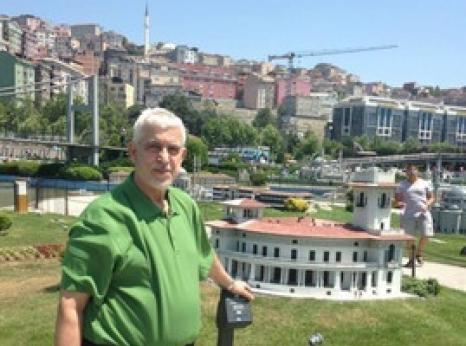Saudi Arabia: Detainee With Cancer Must Get Medical Care

Palestinian nationals Dr. Mohammed al-Khudari and Dr. Hani al-Khudari were arbitrarily arrested on 4 April 2019 and remained in detention without charges until 8 March 2020. Both men were subjected to gross human rights violations including enforced disappearance, arbitrary arrest and detention, being held incommunicado and in solitary confinement. Furthermore, both men were interrogated behind closed doors without the presence or participation of their lawyers. In November 2020, they were transferred to Abha prison, which lacks medical specialists and the standard care necessary.
On 8 March 2020, both men were charged before the Specialized Criminal Court with “joining a terrorist entity” - understood to be Hamas de facto authorities - as part a mass trial of 68 individuals. Dr. Mohammed al-Khudari was additionally charged with holding several leadership positions within the entity. This trial was marred by numerous and serious violations of their due process rights, including enforced disappearance, arbitrary arrest and detention, being held incommunicado and solitary confinement. On 8 August 2021, the Specialized Criminal Court in Riyadh sentenced Dr. Mohammed al-Khudari to 15 years in prison, with half the term discounted given his age; leaving him with seven and a half years to serve in detention; and sentenced Dr. Hani al-Khudari to three years in prison including time served, followed by deportation from Saudi Arabia. Following the appeal, on 28 December 2021, the Court of Appeal in Riyadh reduced the sentence of Dr. Mohammed al-Khudari to six years in prison, with half the term discounted given his age; and upheld Dr. Hani al-Khudari’s sentence. Based on this, both men should have been released from prison on 28 February 2022.
Dr. Mohammed al-Khudari suffers from prostate cancer and has lost mobility in his right arm due to the harsh sleeping conditions in his cell, and he has lost half of his hearing. Furthermore, he suffers dental problems on the left side of his mouth, resulting in teeth loss and difficulty eating. Consequently, Dr. Mohammed al-Khudari has significantly lost weight. Recently, the family reported to Amnesty International that Dr. Mohammed’s health has further deteriorated, as he now suffers incontinence, herniated discs, knee pains, bone fragility and general frailty. Despite his life-threatening situation, Dr. al-Khudari has not been granted access to a cancer specialist nor to a dentist, even though he has been admitted to hospital a few times. Similarly, Dr. Hani al-Khudari, suffers anaemia and kidney stones, and has been refused adequate medical care. Furthermore, both men contracted COVID-19 in prison.
Dr. Mohammed and Hani al-Khudari’s family is especially concerned given the history of death in detention in Saudi Arabian prisons. In April 2020, a leading Saudi human rights activist, Dr. Abdullah al-Hamid entered a coma and passed away after suffering a stroke in detention. Then, in October 2021, prominent Saudi cleric Musa al-Qarni was brutally beaten and murdered in prison by another inmate. “We are very concerned for their lives. We pleaded with the authorities to provide them with proper medical care, or place Dr. Mohammed under house arrest so that he can receive treatment, or expedite the release process, but no response so far... This is like a death sentence”, a relative told Amnesty International.
The treatment and detention conditions have placed a great deal of stress and psychological pressure on both men, especially Dr. Mohammed al-Khudari. Such conduct violates the prohibition of torture and other ill-treatment. Furthermore, both men continue to be deprived of regular communication with their family, as prison authorities can simply cancel their weekly call or monthly family visit without explanation.
The arrests of the two Palestinian nationals is part of a wider crackdown by the Saudi Arabian authorities on Palestinian, Jordanian and Saudi Arabian nationals residing in Saudi Arabia with a perceived link to Hamas de facto authorities.